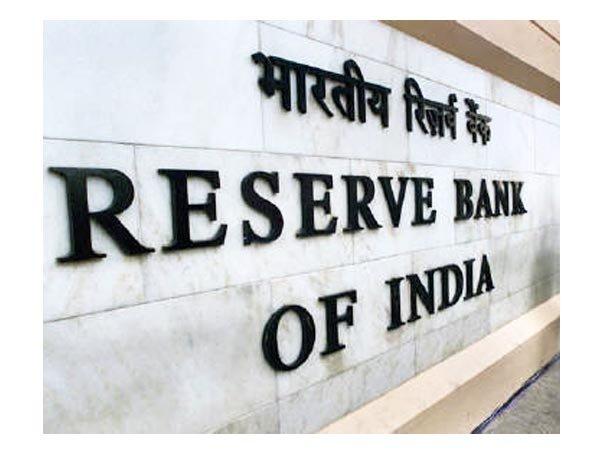The joint venture floated by Centrum Group and digital payments startup Bharatpe for launching a small finance bank will infuse Rs 1,800 crore capital into troubled Punjab & Maharashtra Cooperative Bank (PMC) on its merger with the proposed bank, a top Centrum official has said. Last Friday, the
Reserve Bank gave an in-principle approval to Centrum Financial Services, a step-down arm of the diversified financial services group, to set up a small finance bank (SFB) provided it took over the troubled
PMC Bank.
The in-principle approval has been in specific pursuance to Centrum Financial Services’ offer on February 1, 2021 in response to the expression of interest notification dated November 3, 2020 published by the PMC Bank, the RBI said.
This paves the way for ending nearly two anxious years for the PMC depositors whose over Rs 10,723 crore are still stuck in the crippled cooperative bank that has been under RBI administrator since September 2019.
To launch SFB, the Centrum Group has sewed up an equal joint venture with Resilient Innovations, an arm of Gurugram-based Bharatpe. But Centrum Capital will be the promoter of SFB, under the prevailing laws, the group said.
“We (the SFB joint venture) have set aside Rs 1,800 crore for the SFB, which eventually will be pumped into PMC once the government scheme for merger is notified. Of the Rs 1,800 crore, Rs 900 crore will be invested in the first year by the joint venture split equally between the two and the remaining capital in stages,” Jaspal Bindra, executive chairman of Centrum Group, told over the weekend.
Whether they will take over the more than Rs 6,500 crore of NPAs of PMC and also the over Rs 10,700 crore of its deposits, Bindra said that will be known only after the government notified the merger scheme.
“What terms and conditions the government will set in the merger scheme will decide the fate of huge bad loans and losses. In fact, this is the only little unknown we have as of now,” Bindra quipped.
That the groups have allocated nine-times more capital over the RBI mandate of Rs 200 crore for the SFB shows the seriousness of the promoters. If it succeeds, this will be the first SFB in nearly six years — the first set of SFB licences were issued in August 2016, when the monetary authority also made such licensing on-tap.
Bindra, who was the group executive director and chief executive for Asia Pacific at Standard Chartered Bank till 2015, joined Centrum in April 2016 as executive chairman and picked up around 25 per cent, also said they will surrender all their NBFC licences before launching the SFB.
“The RBI has given us 120 days to complete the other “fit and proper conditions” to seek the final licence, which I am very confident of meeting well in time. In fact, we will be seeking the final licence as soon as possible,” he said.
Asked he chose a startup to form an equal joint venture for its banking foray, Bindra said, for one, very few players have the technological edge that Bharatpe has. “For another, we’ve been having strong business relationships with the Gurugram startup since the very first day of its operations.”
“So we are known to each other since 2018 and moreover our businesses complement each other and the SFB will definitely be a tech-driven bank for sure. In fact, we have had a full joint agreement in place much before we sought the licence and we joint bided for the licence,” he added.
Asked if the focus on technology will lead to branch rationalisation of PMC, he said when it comes to lending it will be tech driven “but for deposit raising we have to have branches. So in effect we may have to retain the branches to a large extent”.
The city-based Centrum Group, founded by Chandir Gidwani and Khushrooh Byramjee in 1977, has a diversified fee business and a lending platform for institutions and individuals. It offers investment banking, mid-corporates & SME lending, and broking for institutions and retail. It also provides MSME credit, wealth management, affordable housing and micro lending, apart from private debt and venture capital.
Centrum Capital, which is listed on the exchanges, reported a net loss of Rs 16.02 crore in Q3 of FY21 as against a net profit of Rs 3.35 crore in Q3 of FY20 as its income declined 7.2 per cent to Rs 123.12 crore in the quarter.
On the other hand, 2.5-year-old Bharatpe closed FY21 with an operating income of over Rs 700 crore, up from Rs 110 crore in FY20, driven by its credit business that closed the year with a loan book of Rs 1,600 crore, its president Suhail Sameer had told last week.
As of March 2020, PMC’s deposits stood at Rs 10,727.12 crore, advances at Rs 4,472.78 crore and gross NPAs at Rs 3,518.89 crore and net loss of Rs 6,835 crore, with a negative networth of Rs 5,850.61 crore.
The PMC book was so bad that as much as 73 per cent of its assets worth over Rs 6,500 crore of the total Rs 8,880 crore loans were to the crippled developer HDIL and all of them had turned dud by September 2019.
A good portion of the deposits are of senior citizens and cooperative societies including an RBI officers association. Its share capital is Rs 292.94 crore.
Bindra said they are yet to finalise the name for the SFB but added it will not be PMC for sure. The board is more or less in place and I will certainly be a part of it, he said.









